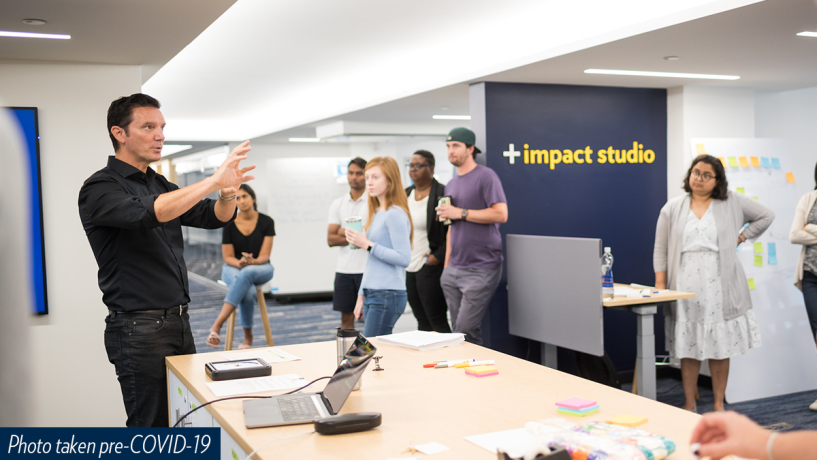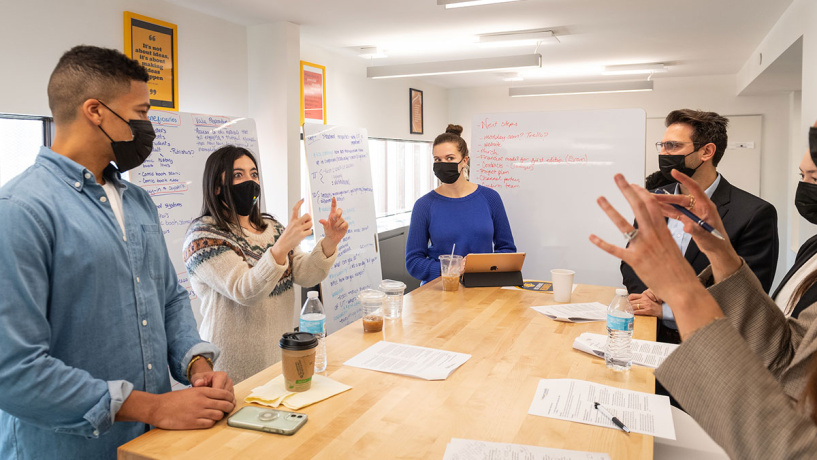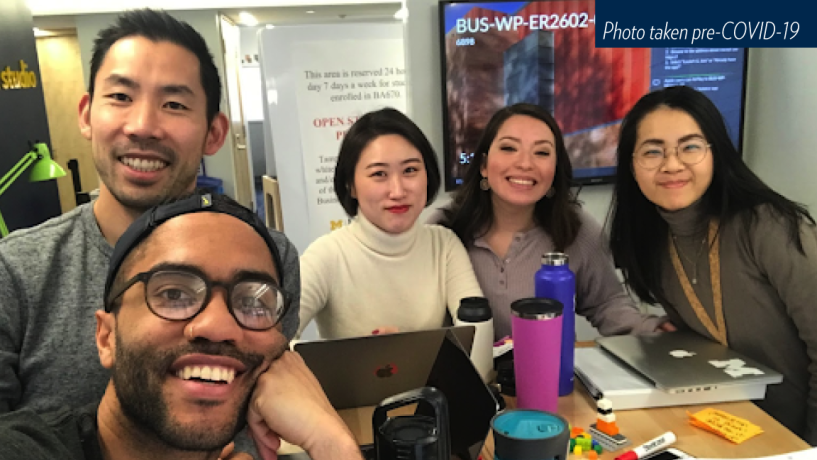Course Spotlight: Michigan Ross and U-M Students Create Designs For Equitable Enterprises
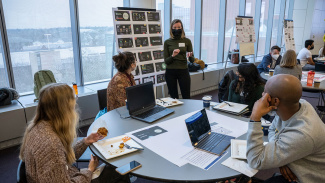
Can restaurants be good employers and good businesses? How should they recover from the pandemic?
Ten teams of graduate students from the University of Michigan presented their answers to those questions in April at Demo Day, a key component of an award-winning, impact-themed business course at the Ross School of Business.
That course, Impact Studio: Translating Research into Practice, is hosted by the +Impact Studio and co-taught by Jerry Davis, the Gilbert and Ruth Whitaker Professor of Business Administration at Michigan Ross and the Business+Impact initiative faculty director; and Cat Johnson, managing director of Business+Impact. Through the course, students have the opportunity to enhance their research and design skills while collaborating across boundaries to tackle some of the world’s most pressing business challenges.
Davis said students are able to explore a new way of thinking about their role as business leaders in society by taking the course. “Design is the new master skill for surviving in the world of business. This experience is about business design; you learn about finance, accounting, marketing, management, and operations, and this is the class that examines all these elements through the lens of business impact," he said.
The goal of this course is to translate research findings into impact in the world, and, along the way, train students to be architects of the 21st century.
Designed to be interdisciplinary, the course had 40 graduate students from nine different schools on campus, including Michigan Ross, the Gerald R. Ford School of Public Policy, the School of Information, and the School of Social Work, working together to develop their prototypes this past semester.
With the theme "designing the equitable enterprise," students took on challenges faced by the restaurant industry in the wake of technology changes and the COVID-19 pandemic. To complete their semester-long projects, the student teams used equitable design and futuring tools to prototype equitable restaurant models that would provide good jobs, appeal to consumers, and help enrich local communities.
The students also used their research to create how-to guides that provide information on how restaurants can innovate and operate more equitably. They covered topics from how to raise capital in nontraditional ways to how managers can help put undocumented workers on the path to residency and how to convert a business to a worker co-op.
Michigan Ross students share their thoughts on designing equitable restaurant ventures
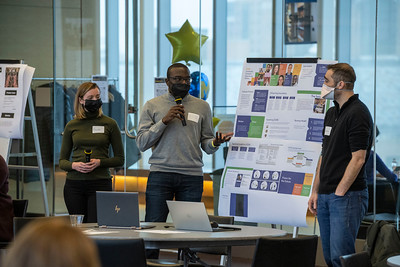 On Demo Day, Sasha Kolodkin, MBA/MS ’24, said the main problem her team focused on was a lack of respect for the people who make our food. “The question was how do you make people respect workers in the restaurant industry through a memorable, interesting, and creative approach,” said Kolodkin.
On Demo Day, Sasha Kolodkin, MBA/MS ’24, said the main problem her team focused on was a lack of respect for the people who make our food. “The question was how do you make people respect workers in the restaurant industry through a memorable, interesting, and creative approach,” said Kolodkin.
“The +Impact Studio exists to facilitate a space where solutions to problems like this one can emerge,” she explained. “There is no one way to problem-solve creatively, but the design thinking approach championed by Cat Johnson and Professor Jerry Davis is extremely accessible, even to people who might not be creatively inclined.”
Similarly, Claire McLeland, MBA ’22, shared that learning about the foundation and design of equitable enterprises was inspiring to her.
“I have family in the restaurant business and regularly see the challenges of it,” McLeland said. “This course offered the opportunity to enhance my design-thinking and human-design skills which have been an interest of mine, while also leaning into the strengths of my teammates.”
Why students enrolled in the +Impact Studio course
Many of the students explained that they took the +Impact Studio course because of its relevance to real-world business applications and for the opportunity to learn from Davis.
“The course looked really interesting; it was narratively compelling, and learning from Professor Davis was an opportunity I couldn’t pass up,” Kolodkin said.
Jenan Makki, MS ’23, said that the societal impact component and the opportunity to work with a diverse group of students compelled him to take the course.
“For our team, working with Hayley Sakwa, MBA/MPP ’24, was great because her point of view helped emphasize sustainability and policy, which was unique from our other teammates and modeled the different perspectives you need to take into account in real-world business,” Makki said.
Learn about the +Impact Studio course projects this semester
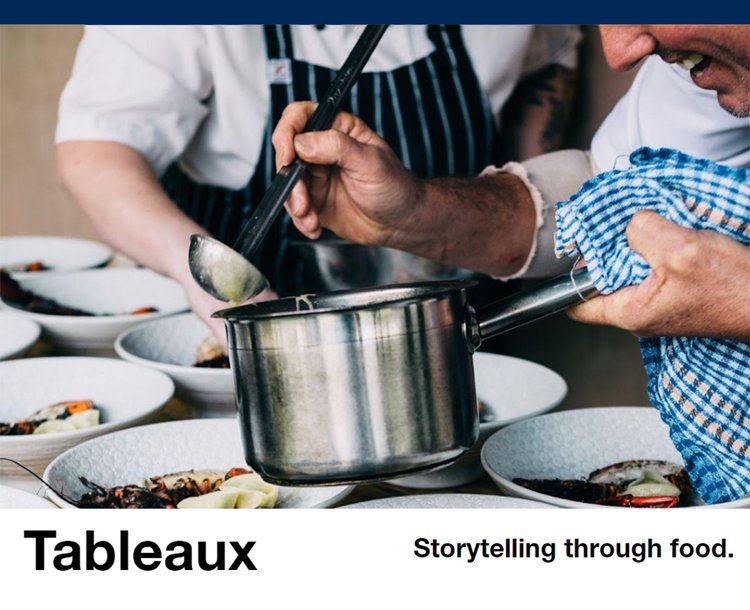 Tableaux
Tableaux
Student team: Paul Capp, MBA/MPP ’22; Kolodkin; Isabel Talsma, MS ’22
Tableaux leverages consumers’ curiosity about where their food comes from and their craving for human connection by creating an immersive restaurant experience with a rotating chef-in-residence model to give chefs a space to tell remarkable stories over outstanding food.
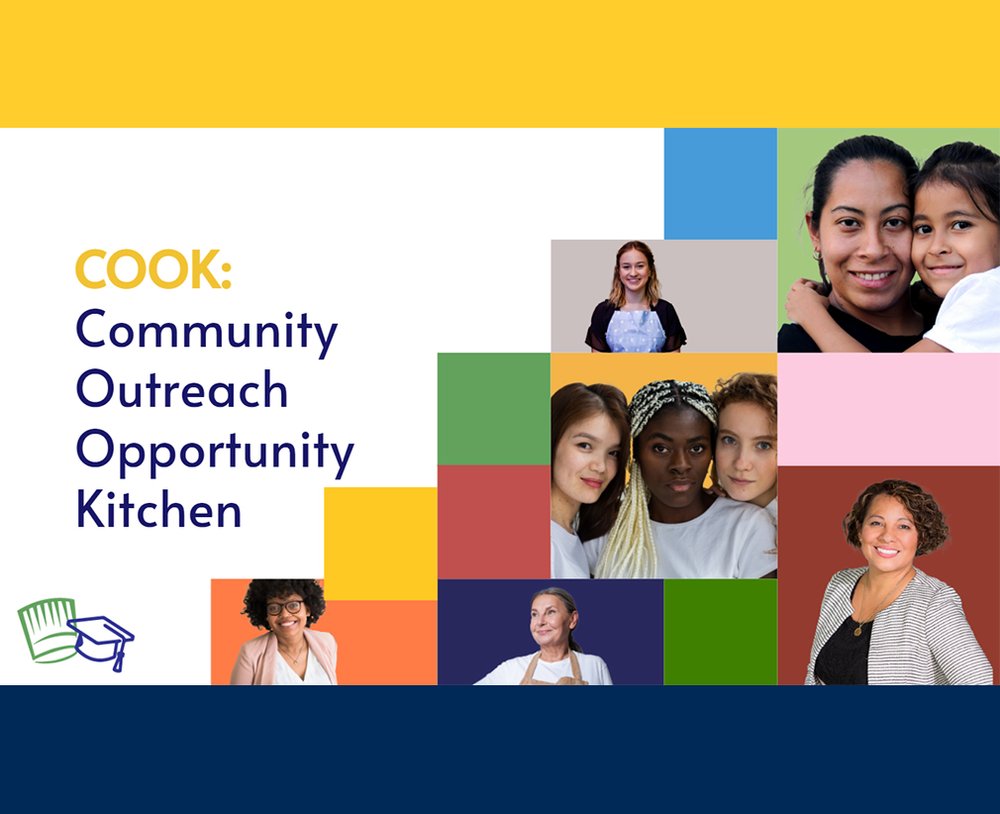 COOK
COOK
Student team: Kosi Browne, MS ’23; Andrew Darvin, MBA/MUP ’22; Emilee Kutyla, MS ’23; Isabel Randolph, MBA ’22
COOK, which stands for Community, Outreach, Opportunity Kitchen, is a community-driven restaurant and deli that empowers its staff with employment education opportunities while providing delicious, locally sourced food and gathering space for the larger community. COOK seeks to support women in the workforce and provide family-friendly offerings, including an onsite childcare cooperative for employees and community members.
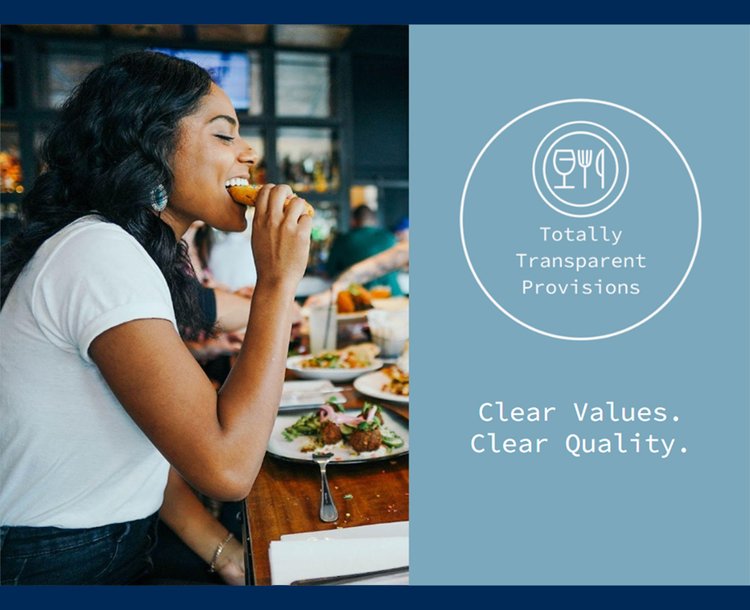 Totally Transparent Provisions
Totally Transparent Provisions
Student team: Douglas Ely, MBA/MS ’21; Kelly Liu, MS ’23; Candance Samuel, MBA ’22; Rebekah Williamson, MS ’22
Totally Transparent Provisions works to build a more just and equitable restaurant business model through transparency and co-creation activities via an open-book management process. Its vision is to help employees and community members to take an active part in operational and financial decision-making processes through the adoption of the open-source model as the new norm of the restaurant industry.
 Price Transparent Receipts
Price Transparent Receipts
Student Team: Cynthia Ding, MS ’22; Terrence Liu, MS ’22; Makki; Sakwa
Price Transparent Receipts uses integrated software that provides restaurant customers with detailed cost transparency of their meals, including food, labor, operations, and restaurant profits, so customers know exactly where their money is going. Their venture supports customers in making empowered purchasing decisions and sparks a trusting and transparent relationship between restaurant owners and customers.
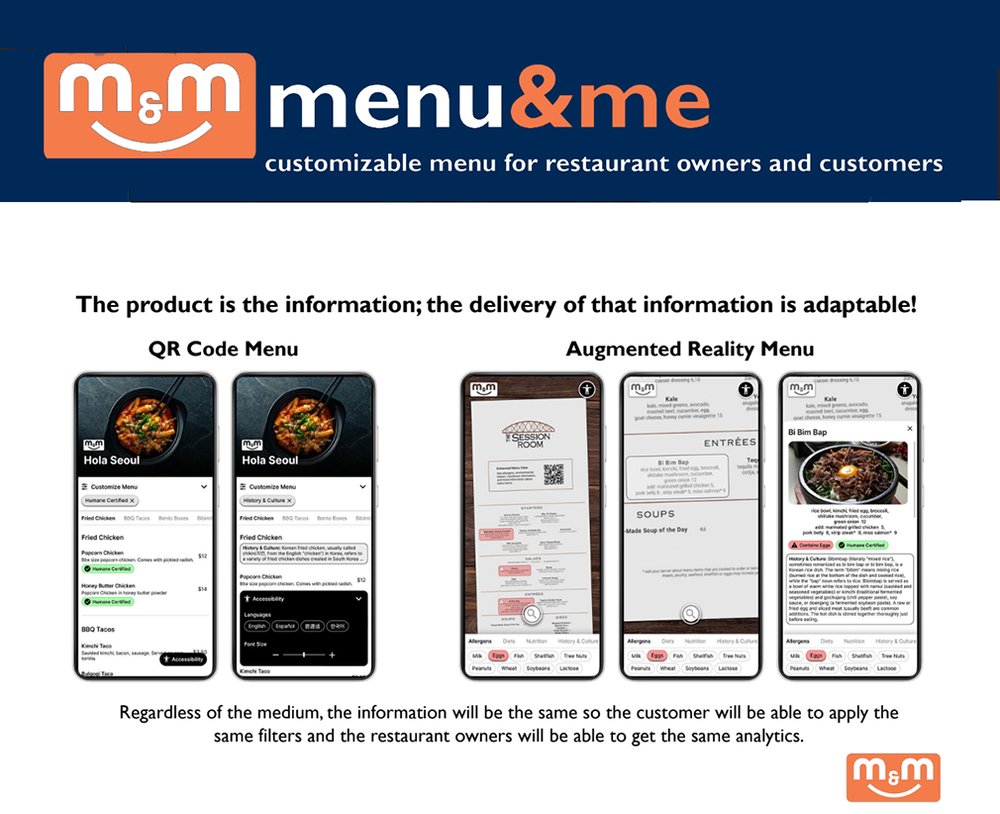 Menu&Me
Menu&Me
Student Team: Alyssa Downs MS ’22; Gwenevere McKee, MS ’23; Keshav Vanam, MBA ’22; Edith Zhang, MS ’23
Menu&Me allows restaurant-goers to have a more tailored food experience and restaurant owners to learn more about who eats in their restaurant by creating customizable menus for both owners and customers. The digital menu tool provides insights into a restaurant's ingredients, supply chain, treatment of workers, and other concerns, allowing restaurant owners to gain insights into customer behaviors and customers to make informed decisions about where and what they eat.
 Seedling
Seedling
Student team: Orville Mo-He, MS ’23; Allison Winstel, MBA/MPP ’22; Zhihui Zhu, MS ’23
Seedling creates a local food hub and community where farmers, chefs, entrepreneurs, workers, diners, and other food enthusiasts can come together and interact with the food system.
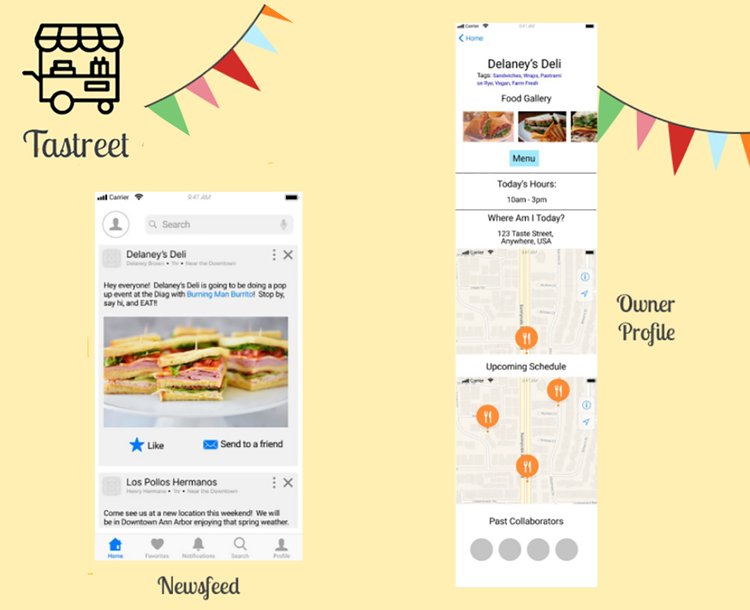 Tastreet
Tastreet
Student team: Amy Engineer, MS ’23; Allison Fritsch, MPH/MSW, MS ’23; Káteri Guterrez, MBA ’22; Eli Forrester, MBA/MS ’24; Chloe Preble, MS ’22
Tastreet is an app that connects small and local vendors to food lovers to give you real-time food access, incentives for entrepreneurship, and helps you connect with the community.
 BackStage VIP Services
BackStage VIP Services
Student team: Amanda Hsu, MS ’23; Tyrese Jackson, MBA ’22; Elana Lambert, MSW ’23; Savannah Major, JD ’22, Sadhana Ramaseshadri, MS ’22
BackStage VIP Services enables restaurants to pay an equitable wage to employees by working with restaurants to develop unique services, legal aspects, and contractual agreements.
 Chef’s Friend
Chef’s Friend
Student team: Andrew Johnston, MBA ’22; Lavanya Pandit, MS ’23; Dana Reik, MS ’22; Margaret Walthall, MPP ’23
The mission of Chef’s Friend is to foster diversity in local dining communities through a tech-enabled food democracy where customers can vote on which chefs they want to see in the restaurant. Each week, new chefs bring in their unique food creations to Chef’s Friend dining spaces, while the restaurant maintains a regular front-of-house and back-of-house staff that is familiar with how to support visiting chefs.
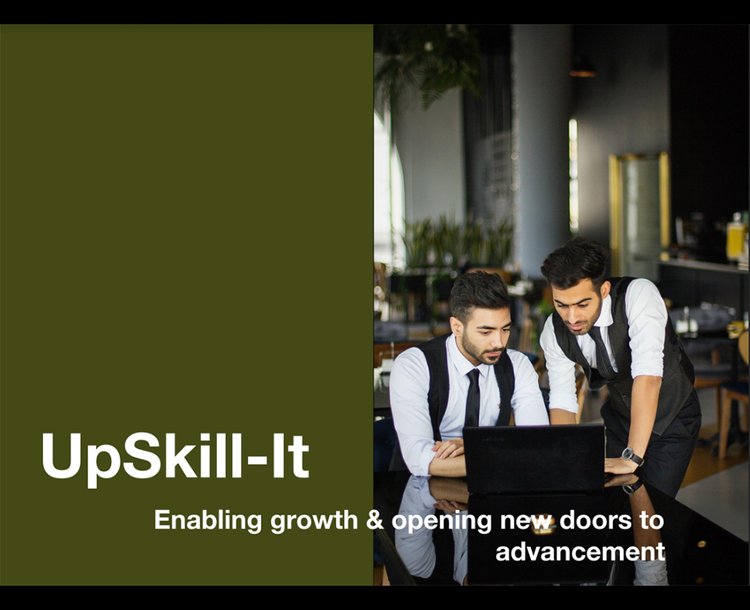 UpSkill-It
UpSkill-It
Student team: Mya Gibson, MS ’22; Yash Kamat, MS ’22; Claire McLeland, MBA ’22; Rebecca Xu, MS ’23
UpSkill-It is an online learning management platform that allows restaurant workers to broaden their skill sets and learn practices that can transcend different types of restaurants. The team’s venture idea is focused on promoting equitable business by ensuring an equal say and pay for co-workers by analyzing the workers’ perspectives to make an impact.





